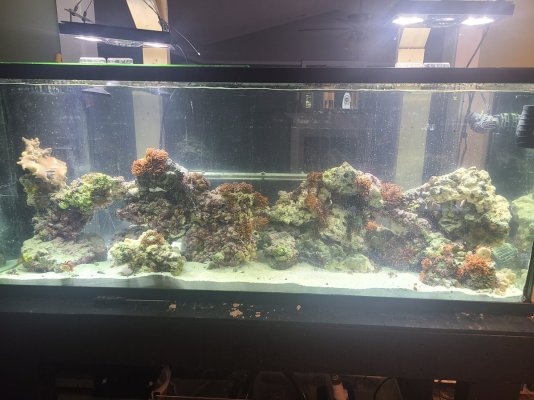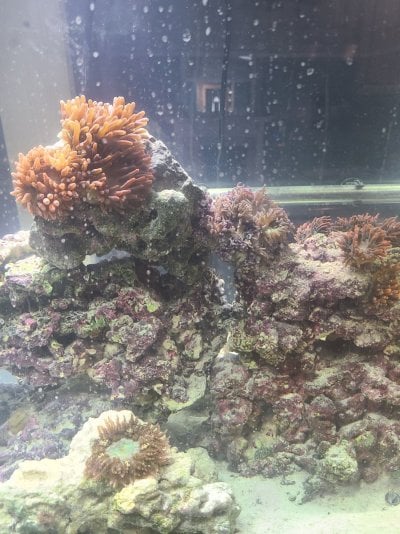Hello,
I bought a 120g used with sand and lots of rocks and tons of nems, and inverts a few days ago. I should have not reused the sand I'm realizing that now. Ammonia is 0.93 (hanna) nitrate 7.9 (hamna). I already had to do a massive water change about 60-70% because I couldnt transport all the water needed to fill the tank. I'm really trying to avoid more water changes for a little bit as that was quite a lot of work. Can I just dose prime and microbacter 7 and hopefully its just a mini cycle and resolves in a few days? I just dont want all the inverts to die. No fish in there right now. Thank you!
I bought a 120g used with sand and lots of rocks and tons of nems, and inverts a few days ago. I should have not reused the sand I'm realizing that now. Ammonia is 0.93 (hanna) nitrate 7.9 (hamna). I already had to do a massive water change about 60-70% because I couldnt transport all the water needed to fill the tank. I'm really trying to avoid more water changes for a little bit as that was quite a lot of work. Can I just dose prime and microbacter 7 and hopefully its just a mini cycle and resolves in a few days? I just dont want all the inverts to die. No fish in there right now. Thank you!






















